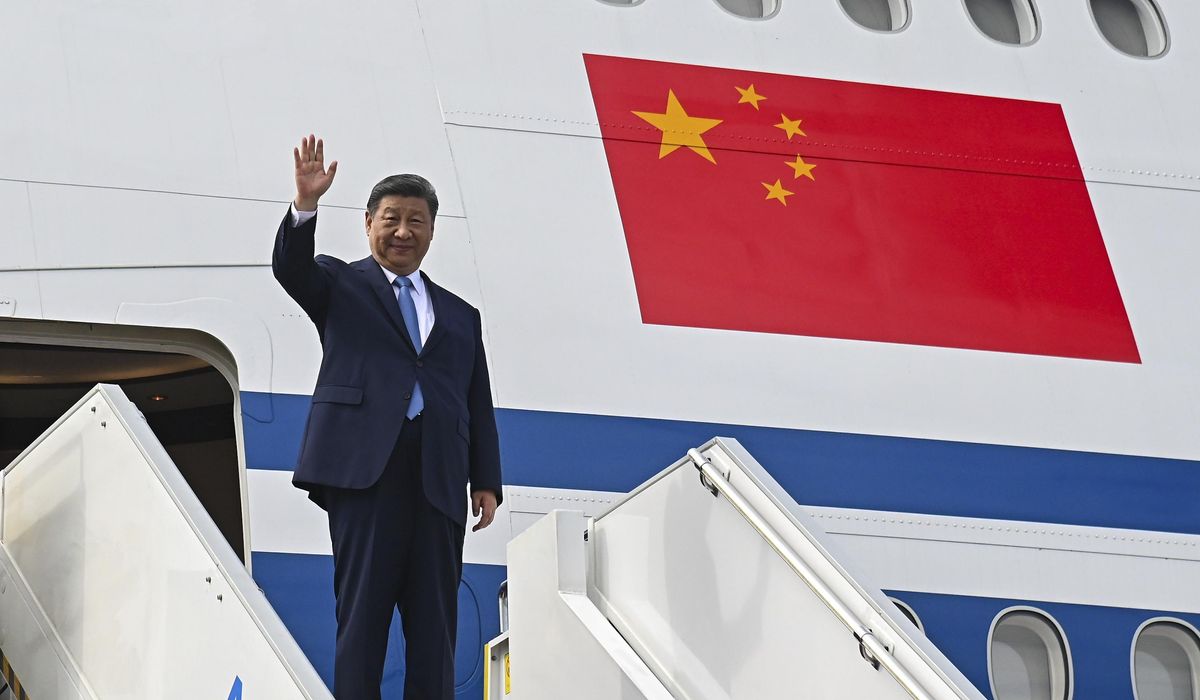


As the White House shifts its foreign policy focus to ending wars in Eastern Europe and the Middle East, one China expert who worked in President Trump’s first administration says Beijing is continuing to expand its political influence globally.
In the latest episode of the Threat Status Influencers Series, China expert Miles Yu explained how there are only two real superpowers left in the world: China and the U.S.
Mr. Yu, who serves as director of the China Center at the Hudson Institute and was a policy adviser to former National Security Adviser John R. Bolton in the first Trump administration, praised the efforts of the first Trump White House in shifting the U.S.’s geopolitical strategy toward China.
He added that the new Trump administration is moving to continue that work through the president’s tariffs, which Mr. Yu said are frequently misunderstood as purely economic projects.
“Tariffs is not just about tariffs,” Mr. Yu said. “It’s about national security. The president wants to use tariffs as a conduit through which to preserve our industrial base or manufacturing base — to protect American superiority in technology, innovation, and many other areas from China.”
Mr. Yu maintains that the U.S. can keep pace with China from a military, or hard power, perspective. However, he added that when it comes to Washington’s soft power projection, the U.S. should increase its presence internationally.
“Propaganda, disinformation is primarily antithetical to American democracy, openness and transparency. But you are facing an enemy that is not doing the same kind of thing to us,” Mr. Yu told Threat Status. “I think the biggest inadequacy so far is the soft power arena. We have willingly, or unwillingly, dismantled the major tools of our soft power: USAID.”
While he acknowledged that the presence of “domestic politics” inside some U.S.-based institutions is an issue, Mr. Yu said the U.S. Agency for International Development and organizations like it are valuable.
“My concern is really about China competing with the United States, not just for military superiority, but to sell the world a model of governance that will replace the model of governance championed and pioneered by the United States,” he said.
The White House made dismantling USAID and other foreign aid organizations the centerpiece of the first few months of President Trump’s second term. According to some in the administration, USAID was funding useless and sometimes fraudulent programs that ideoloigically conflcted with Mr. Trump’s “America First” agenda.
The decision to gut funding for USAID and fire most of its staffers has been met with frustration from many in the international community who say the cuts will cost lives.
Additionally, national security experts have argued that cutting foreign aid will give China and Russia the opportunity to increase their influence in the developing world.
Mr. Yu called for reforming foreign aid institutions like USAID to rid them of their “partisan” positions so they could better serve U.S. soft power abroad. In particular, Mr. Yu argued, improved U.S. soft power would be an excellent counter to the Russia-China axis.
Since Russia launched its invasion of Ukraine in early 2022, the relationship between Moscow and Beijing has only gotten tighter. China has been a singularly important trade partner with Russia since the invasion, providing many of Russia’s semiconductors, oil and gas. The two powers have also engaged in joint military exercises, and China has shared military technology.
However, Mr. Yu argues that the alliance is somewhat one-sided, with Russia existing somewhat as a proxy for China.
“There is also the so-called alliance between Russia’s Putin and Xi Jinping, which is very much like the alliance between Hitler and Joseph Stalin, forged in August 1939,” he said.
Mr. Yu explained that China is an expansionist power, looking to gather influence in control all over South East Asia. Specifically, Mr. Yu said Beijing is interested in developing influence networks in Vietnam, India, Japan, South Korea and, maybe most importantly, Taiwan.
But to successfully achieve their expansionist goals, Mr. Yu explained, China needs to use Russian aggression as a distraction.
“China needs Russia as an attack dog in places like Ukraine so that Russia could create strategic distractions for the United States,” he said. “China’s Foreign Minister Wang Yi just admitted it two weeks ago in Brussels to the Europeans. That’s exactly why they cannot afford a Russian defeat in Ukraine, because it is the primary distraction for the United States pinned down over there.”
Earlier this month, Mr. Yi told European leaders that China could not accept a Russian loss in Ukraine because it would allow the U.S. to shift its focus to South East Asia, according to reporting from the South China Morning Post.
• Vaughn Cockayne can be reached at vcockayne@washingtontimes.com.
